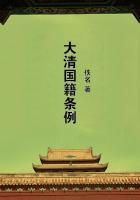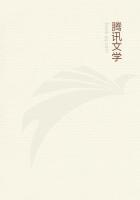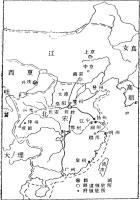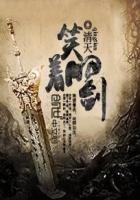Though the lord-lieutenant and the justices of the peace were nominated by the crown,their authority came in fact as an almost spontaneous consequence of their birthright or their acquired position in the country.They shone by their own light and were really the ultimate sources of authority.Seats in parliament,preferments in the church,commissions in the army belonged to them like their estates;and they seemed to be qualified by nature,rather than by appointment,to act in judicial and administrative capacities.The system of 'self-government'embodies this view.The functions of government were assigned to men already powerful by their social position.The absence of the centralised hierarchy of officials gave to Englishmen the sense of personal liberty which compelled the admiration of Voltaire and his countrymen in the eighteenth century.In England were no lettres de cachet,and no Bastille.
A man could say what he thought and act without fear of arbitrary rule.There was no such system as that which,in France,puts the agents of the central power above the ordinary law of the land.This implies what has been called the 'rule of the law'in England.'With us every official from the prime minister down to a constable or a collector of taxes'(as Professor Dicey explains the principle)'is under the same responsibility for every act done without legal justification as any other citizen.'(25)The early centralisation of the English monarchy had made the law supreme,and instead of generating a new structure had combined and regulated the existing social forces.The sovereign power was thus farmed to the aristocracy instead of forming an organ of its own.Instead of resigning power they were forced to exercise it on condition of thorough responsibility to the central judiciary.Their privileges were not destroyed but were combined with the discharge of corresponding duties.Whatever their shortcomings,they were preserved from the decay which is the inevitable consequence of a divorce of duties from privileges.
Another aspect of the case is equally clear.If the privilege is associated with a duty,the duty may also be regarded as a privilege.The doctrine seems to mark a natural stage in the evolution of the conception of duty to the state.The power which is left to a member of the ruling class is also part of his dignity.Thus we have an amalgamation between the conceptions of private property and public trust.'In so far as the ideal of feudalism is perfectly realised,'it has been said,(26)'all that we can call public law is merged in private law;jurisdiction is property;office is property;the kingship itself is property.'This feudal ideal was still preserved with many of the institutions descended from feudalism.The king's right to his throne was regarded as of the same kind as the right to a private estate.His rights as king were also his rights as the owner of the land.(27)Subordinate landowners had similar rights,and as the royal power diminished greater powers fell to the aggregate of constitutional kinglets who governed the country.Each of them was from one point of view an official,but each also regarded his office as part of his property.The country belonged to him and his class rather than he to the country.We occasionally find the quaint theory which deduced political rights from property in land.The freeholders were the owners of the soil and might give notice to quit to the rest of the population.(28)They had therefore a natural right to carry on government in their own interests.
The ruling classes,however,were not marked off from others by any deep line of demarcation;they could sell their own share in the government to anybody who was rich enough to buy it,and there was a constant influx of new blood.Moreover,they did in fact improve their estate with very great energy,and discharged roughly,but in many ways efficiently,the duties which were also part of their property.The nobleman or even the squire was more than an individual;as head of a family he was a life tenant of estates which he desired to transmit to his descendants.He was a 'corporation sole'and had some of the spirit of a corporation.A college or a hospital is founded to discharge a particular function;its members continue perhaps to recognise their duty;but they resent any interference from outside as sacrilege or confiscation.It is for them alone to judge how they can best carry out,and whether they are actually carrying out,the aims of the corporate life.















